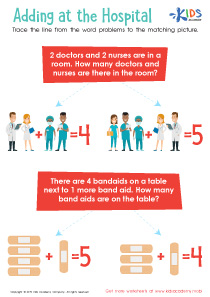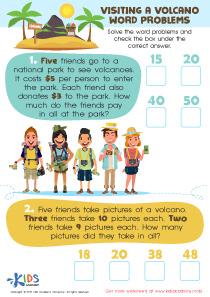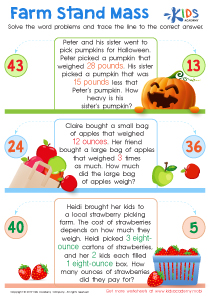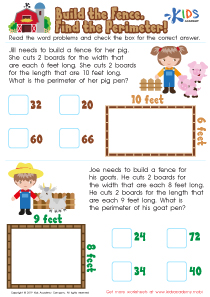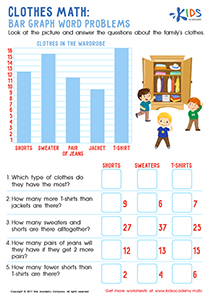Normal Two-step Word Problems Worksheets for Ages 3-4
13 filtered results
-
From - To
Introducing our Normal Two-step Word Problems worksheets, expertly crafted for children aged 3-4 years. These engaging Learning online printables encourage young learners to develop their critical thinking and problem-solving skills through fun, approachable challenges. Designed with early learners in mind, each worksheet gently guides children through the basics of understanding and solving two-step problems, building a solid foundation for more complex mathematical concepts. Perfect for home or classroom use, these printables are an excellent resource for creating a joyful and educational experience. Help your child step into the world of math with confidence and curiosity!


Tricky Problems Worksheet: Part 1


Enrichment -2 Step Word Problems Worksheet


Adding Flower Petals Worksheet
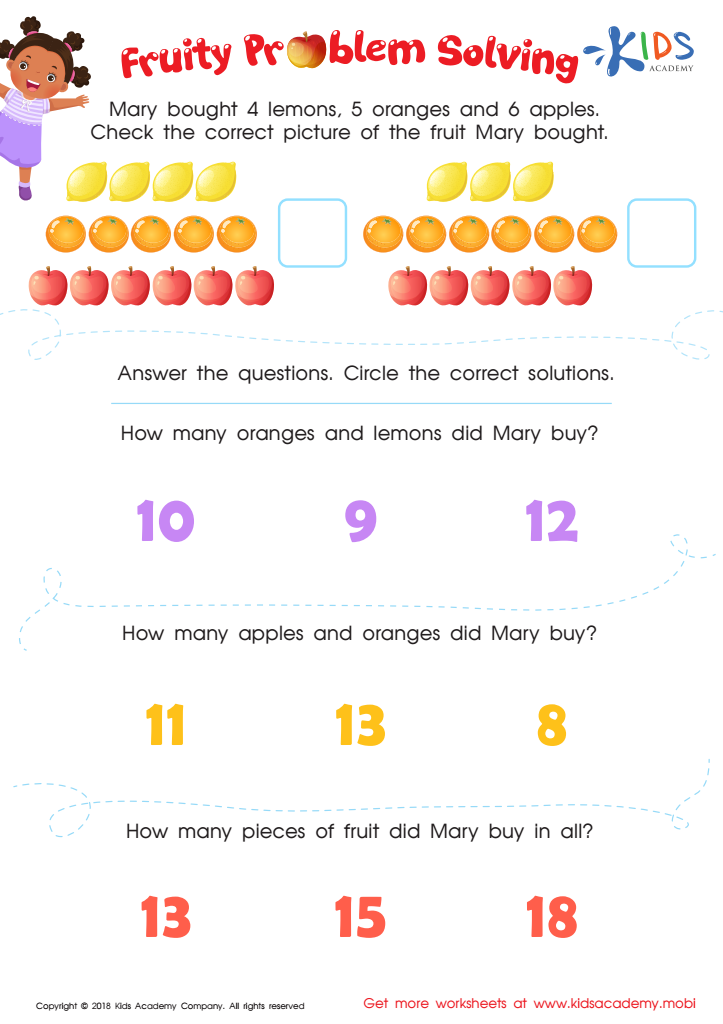

Fruity Problem Solving Worksheet
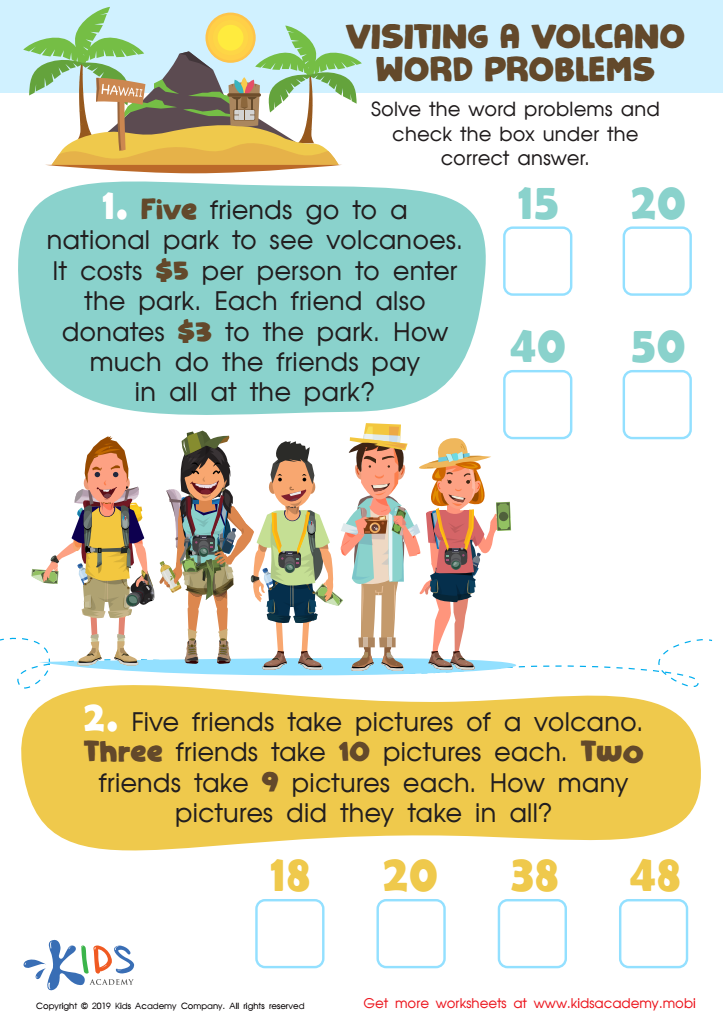

Visiting a Volcano Word Problems Worksheet
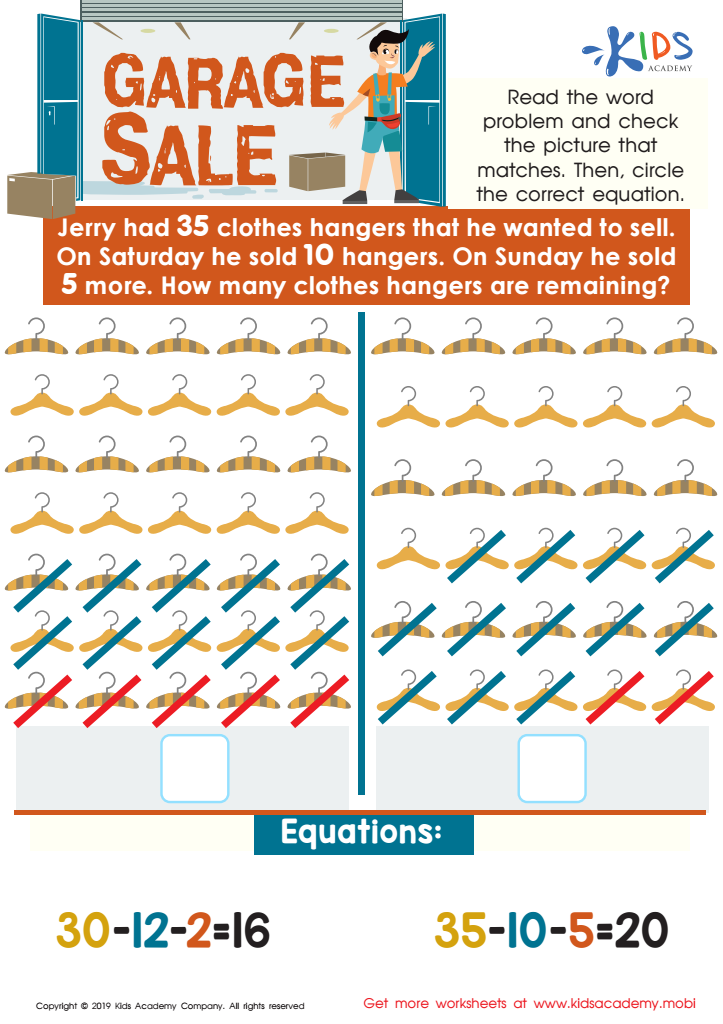

Garage Sale Worksheet


Tricky Problems Worksheet: Part 2
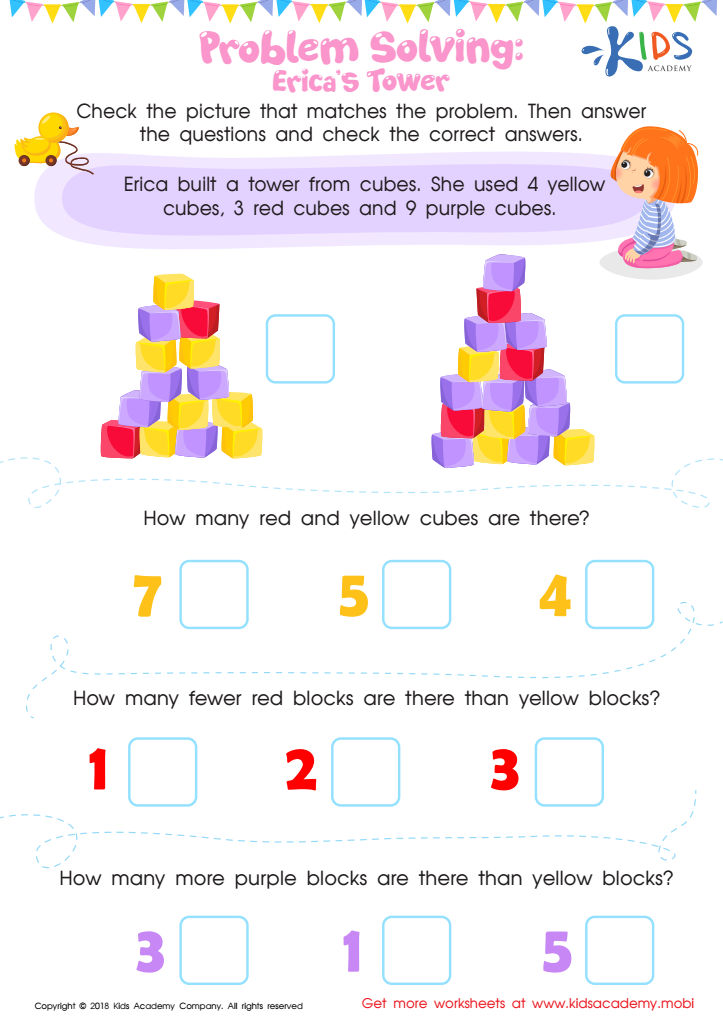

Problem Solving: Erica's Tower Worksheet
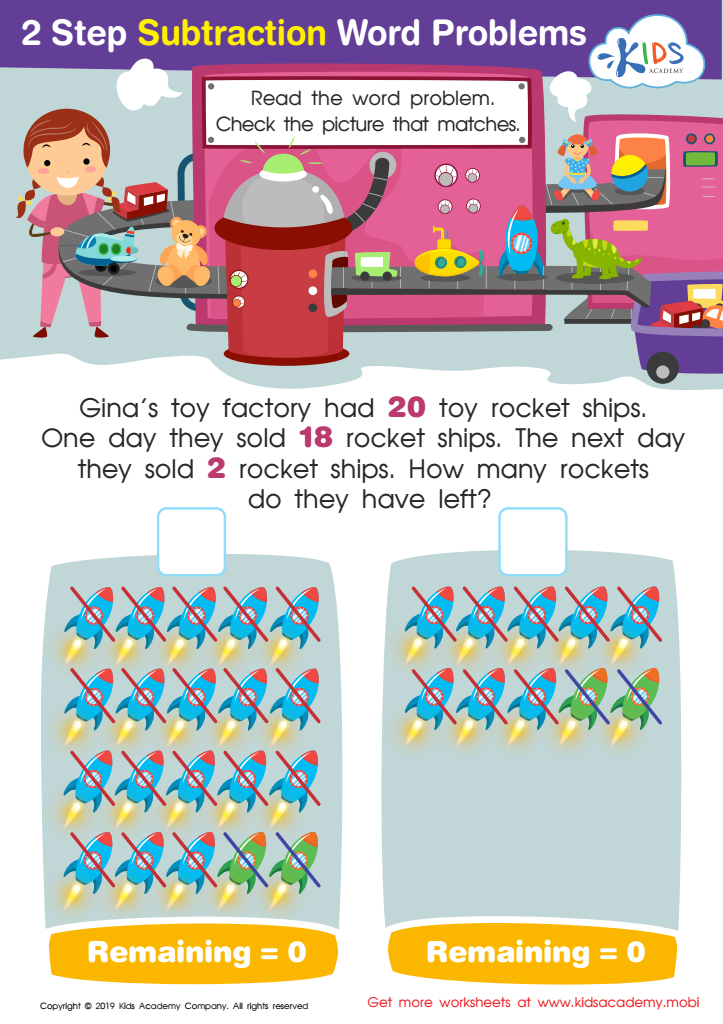

Step Subtraction Word Problems Worksheet


Solve the Problem: Trick–or–treating Worksheet


Addition and Subtraction: Word Problems Worksheet
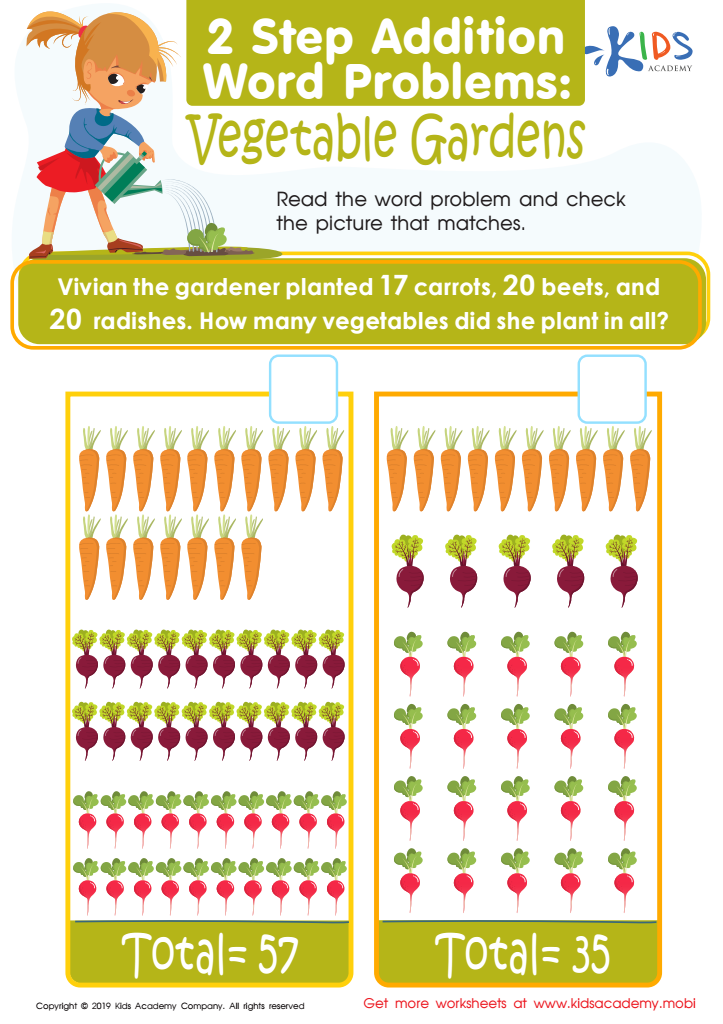

Vegetable Gardens Worksheet
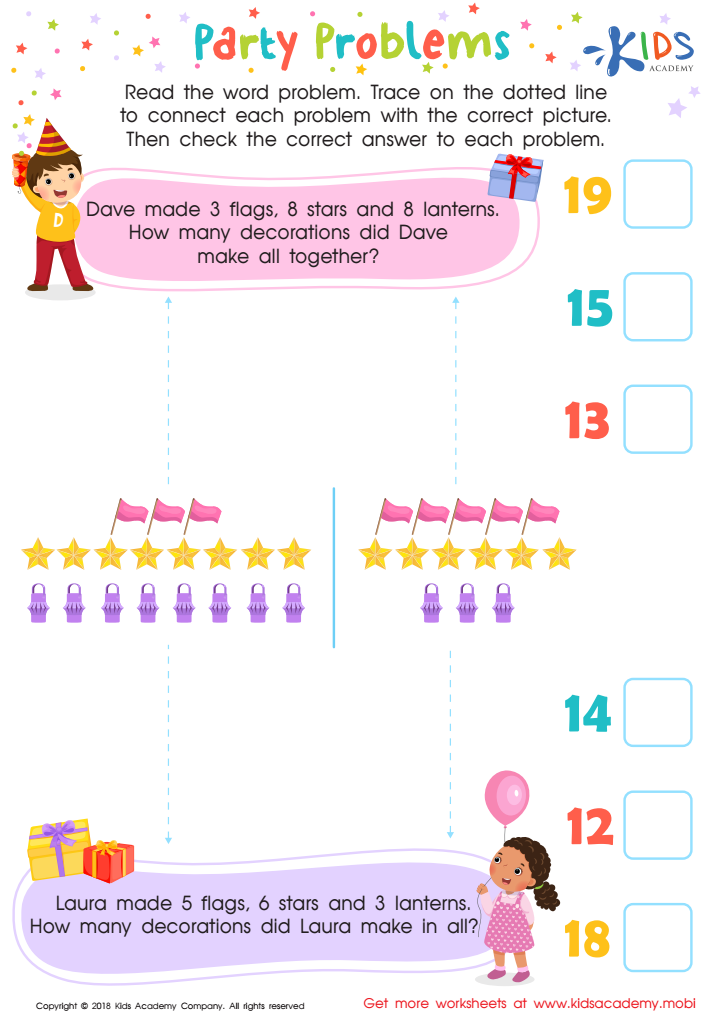

Party Problems Worksheet
The Importance of Learning Interactive Worksheets on Two-Step Word Problems for Children Aged 3-4 Years
In the formative years of a child’s education, it is crucial to integrate tools and methods that not only attract their interest but also enhance their cognitive skills. Among such educational tools are learning interactive worksheets focused on two-step word problems, especially designed for children aged 3-4 years. These worksheets are a blend of engaging content and educational rigor, tailored to nurture the young minds at a critical stage of their development.
Building a Strong Foundation
The early years of child development are pivotal in shaping cognitive and analytical skills. Two-step word problems in worksheets serve as an excellent resource to instill a foundational understanding of basic mathematical concepts. For children aged 3-4, these problems simplify complex concepts into manageable steps, making them more approachable and less intimidating. By breaking down problems into two steps, children learn to follow sequences and develop the ability to solve problems methodically.
Enhancing Critical Thinking and Reasoning
Learning interactive worksheets are structured in a way that they challenge young learners to apply their minds in a focused manner. Two-step word problems require children to comprehend the problem, identify what is being asked, and figure out how to arrive at the solution through sequential steps. This process is crucial in nurturing critical thinking and reasoning skills from an early age. It encourages children to think independently and make connections between different pieces of information, which is a vital skill in all areas of learning.
Interactive Learning: Engaging and Fun
One of the most significant advantages of learning interactive worksheets is that they make the learning process fun and engaging. Children aged 3-4 have short attention spans but are more likely to concentrate when the activity is enjoyable and interactive. These worksheets often include colorful illustrations, themes that interest children, and activities that are tactile and engaging. This not only keeps them engaged but also motivates them to explore new concepts and enjoy the process of learning.
Developing Confidence and Independence
As children work through the steps in these word problems, they begin to gain confidence in their ability to solve problems and make decisions. Each completed worksheet provides a sense of accomplishment and encourages them to tackle more challenging problems. This gradual build-up of skills and confidence is essential for their overall academic growth and self-esteem. Moreover, as they interact with the worksheets, they learn to study and think independently, setting a strong precedent for their future learning endeavors.
Readiness for Future Educational Challenges Learning interactive worksheets, especially those designed with two-step word problems, serve as an excellent preparatory tool for more complex mathematical concepts and other subjects. As children progress from handling two-step problems at the age of 3-4, they develop a readiness to engage with more intricate problems that involve multiple steps and variables. This early exposure to structured problem-solving paves the way for smoother transitions into higher levels of education, where they will encounter math in various forms, as well as subjects like science and engineering that require strong problem-solving skills.
Parental and Educator Involvement
Interactive worksheets not only benefit the children but also offer an opportunity for parents and educators to get involved in the learning process. These worksheets can be used as a bonding tool, where parents can participate and guide their children through the steps, providing encouragement and support. For educators, these tools are versatile for classroom settings, allowing them to observe individual learning styles and adapt teaching methods accordingly. The collaborative nature of these worksheets helps in building a supportive learning environment that emphasizes collective growth and development.
Customization and Adaptability
One of the strengths of learning interactive worksheets is their adaptability to meet diverse learning needs and preferences. Worksheets on two-step word problems can be designed with varying levels of difficulty and can include different contexts and scenarios to keep the content relevant and relatable for young children. This customization ensures that all children, irrespective of their learning pace, can benefit from these educational tools and have their needs addressed effectively.
Conclusion
In conclusion, learning interactive worksheets focused on two-step word problems are incredibly beneficial for children aged 3-4 years. They provide a foundation for mathematical thinking, enhance critical thinking and reasoning skills, make learning engaging and enjoyable, boost confidence and independence, and prepare children for future academic challenges. By incorporating these worksheets into early childhood education, we can equip our youngest learners with the tools they need to succeed in their educational journeys and beyond. Engaging young minds in such structured and interactive learning experiences ensures that they develop a lifelong love for learning and problem-solving, setting them up for success in an ever-evolving world.
 Assign to My Students
Assign to My Students







